a meta-analysis of prospective studies1-4
Susanna C Larsson, Nicola Orsini, and Alicja Wolk
Am J Clin Nutr 2012;95:362-6.
INTRODUCTION
Magnesium
inversely associated with risk factors for stroke such as hypertension, metabolic syndrome, type 2 diabetes
reduces diastolic blood pressure, fasting C-peptide and insulin concentrations
animal studies
favorable effects on plasma glucose and blood lipid
magnesium deficiency : susceptibility of lipoproteins to peroxidation↑
potentially reduce risk of stroke.
Objective
relation between dietary magnesium intake and risk of stroke summarized
systematic review and dose-response meta-analysis to assess
METHODS
Literature search and selection
PubMed and EMBASE
from January 1966 through September 2011
key words “magnesium intake” combined with “stroke.”
reviewed reference lists of retrieved articles to identify additional relevant studies.
No language restrictions
Inclusion criteria:
1) prospective design
2) the exposure of interest was magnesium intake
3) the outcome was stroke,
4) the studies reported RRs with 95% CIs for 3 quantitative categories of magnesium intake.
RRs had to at least be adjusted for age and sex
METHODS
Data extraction
extracted from each study: first author’s last name, publication year, name of the cohort study, study location, years of follow-up, sex, age, sample size (number of cases and total number of participants), magnesium intake categories, covariates adjusted for in the multivariable analysis, and RRs with their 95% CIs for each category of magnesium intake.
conducted independently by 2 investigators (SCL and NO) with disagreements resolved by consensus.




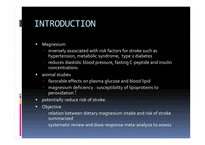
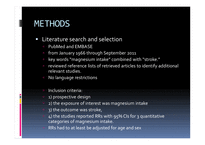
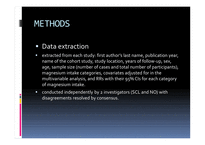
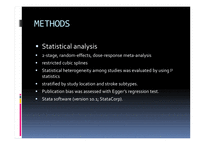
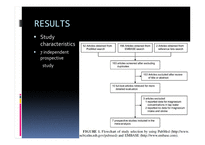
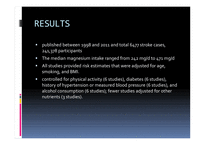
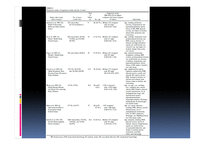
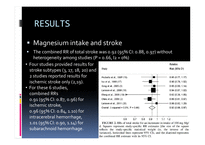

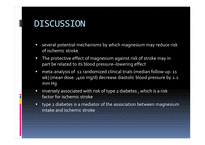
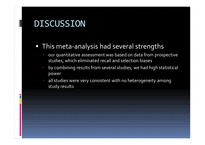
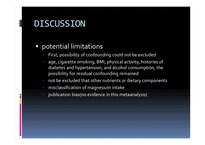
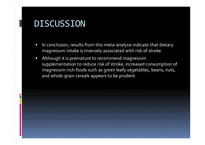
 분야
분야


